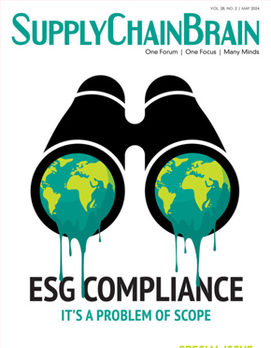
Smart partnerships and relationship management are critical to every supply strategy, but the supply-chain contract is what counts when questions arise or things go wrong. Contracts set expectations, guide the resolution of disputes, and outline how and when the parties’ obligations end. Getting it right is crucial.
The exact provisions of supply-chain contracts will vary depending on the business and your industry. But certain provisions that should rarely, if ever, be excluded. Following are five key clauses that should be staples of supply-chain contracts.
1. Protect your confidential information and company know-how. This helps you to maintain your competitive advantages. Achieving this in practice can be complicated, since it requires both practical and contractual protection. These are the features of strong confidential information protection in a supply-chain contract:
Clearly define confidential information. Be sure to carefully detail exactly what comprises confidential information in your supplier contract. Consider including financial information, product pricing, business projections, designs, composites, moulds, tools, equipment, details of other suppliers, and any specialized processes, among other things.
Limit access to any confidential information. This clause should outline the practical steps your supplier must take to prevent staff (or anyone else, including third-party vendors and subcontractors) from accessing your confidential information and know-how. These steps might include:
- Physical barriers,
- Restricted access to digital assets,
- Security measures,
- Having third parties agree to the confidentiality provision in your agreement (or similar confidentiality requirements),
- Assigning responsibility for maintaining confidentiality to a particular member of the supplier’s team, and
- Ensuring that confidential information will be returned when the contract ends.
Detail who owns any intellectual property developed. Your supplier may develop I.P. while working on your project. The contract outlining your agreement should clearly assign rights to the I.P. to your company, if you wish to claim ownership of it.
Outline auditing procedures. Best practice means putting in effort far beyond the wording of the contract. You should have the ability to visit your suppliers’ sites and review their records to ensure the measures required are in place and being adhered to. Your contract should outline how and when these audits may take place.
2. Detail your materials and quality requirements. Diverse supply chains help to meet consumer expectations, grow profits, innovate, and stay competitive. They also make it more cumbersome to manage and guarantee quality. Clear and concise supplier contracts can help to mitigate materials and quality issues.
Inclusion of a clause that details exact materials requirements can prevent suppliers from switching in lower-quality materials. You should outline the type, color, shape, size, weight, and acceptable sources of the supplies.
As for quality requirements, your contract should outline a firm minimum standard for quality. You should specify the purpose of the product, and detail that the products delivered must be fit for purpose. Any quality-assurance tests required should be clear, as should the consequences of failing to meet the required standards.
3. Protect your I.P. from counterfeits. The intellectual property law in any jurisdiction where you operate offers some protection from counterfeits, as long as you register your I.P. there. This protection can be amplified by liquidated damages provisions, which offer strong incentives for suppliers to protect your I.P., and provision for immediate injunctive relief where it’s being infringed.
Liquidated damages provisions outline that, where your I.P. is being misused, sold, or “held hostage” during a dispute or following termination of the contract, your supplier will be required to pay you a predetermined sum of money.
An injunctive relief provision gives you the ability to legally require your supplier to stop doing whatever it is they’re doing that contravenes the terms of your contract. In the context of I.P., your supplier would immediately need to stop selling the counterfeit products.
Non-approved third-party sales should also be covered in the liquidated damages clause. This prevents your supplier from selling off any excess products or products you reject. You can also achieve this by requiring your supplier to provide a third-party certification of destruction, or return your products to you.
4. Include conditions to promote contractual performance. The importance of carefully drafted performance clauses in your supply-chain contracts has never been more apparent than throughout the pandemic. Court appearances, and the negotiation of settlements relating to non-performance during the pandemic, will continue for years to come.
Provisions that promote performance can be beneficial in these cases. These include:
- Performance guarantees from a parent company,
- Financial penalties for delays,
- Termination clauses for non-performance,
- Suspension or termination clauses for delayed performance,
- Escrow arrangements,
- Performance bonds, and
- Rights that allow another supplier to “step in” where the supplier has failed to deliver.
5. Plan for the end of your contract. Supply-chain contracts should outline the circumstances under which parties can terminate a contract, and what happens once that termination occurs. You should be clear about what is owed to whom, and what steps must be taken both before and following termination.
Clear obligations from the outset minimize the risk of a dispute arising in the first place. If a termination occurs, it sets clear expectations for what’s to follow — again, limiting the scope of any dispute.
With these contractual protections and strong, strategic supply-chain relationships, you can better position your company for success into the future.
Hannah Genton is founding partner at CGL LLP.







